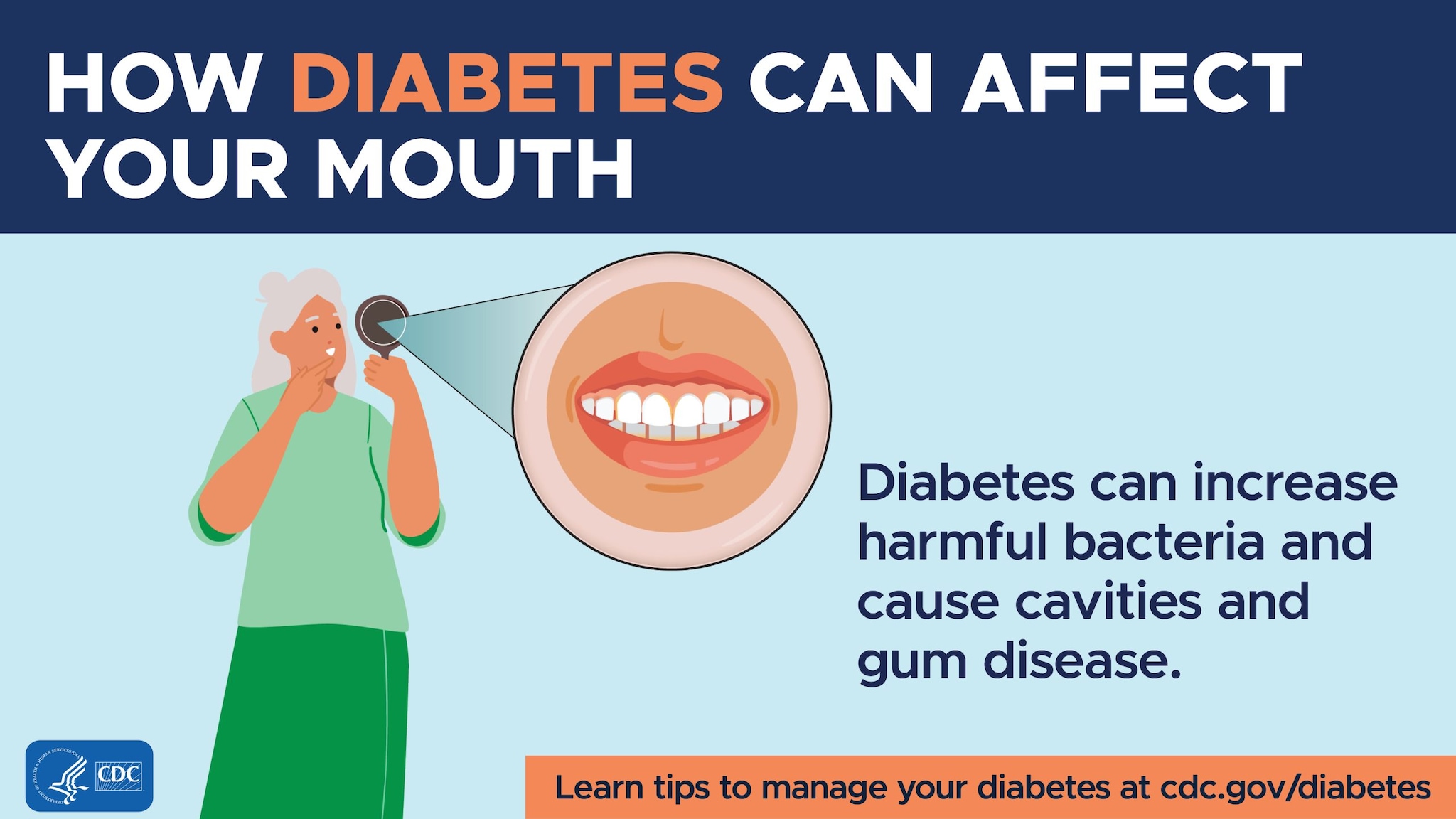What to know
- High blood sugar can make it harder to keep your mouth healthy.
- High blood sugar can also weaken white blood cells, which fight infections.
- Managing your diabetes helps prevent gum disease and other health problems.

Why oral health matters
Taking good care of your mouth is important to your overall health and well-being. Good oral health habits can help prevent pain and infections from tooth and gum disease.
If you have diabetes, taking care of your teeth is even more important. High blood sugar can weaken white blood cells. These are your body's main way to fight infections that can occur in the mouth.
Keep that smile on your face, though! By managing your diabetes, you manage more than your blood sugar. You're helping to prevent gum disease and other infections in your mouth.
More than a sweet tooth
If the sugar level is high in your blood, it's high in your saliva too. Bacteria in plaque, a sticky film, use sugar as food. Some bacteria can cause cavities and gum disease. If the tooth is not treated, it can also lead to tooth loss.

Gum disease can be more severe and take longer to heal if you have diabetes. And if you have gum disease, your diabetes may be harder to manage.
Here's a quick look at how diabetes can affect your oral health:
- You may have less saliva, causing your mouth to feel dry.
- Your gums may become inflamed and bleed often (signs of gum disease).
- Infections in your mouth can take longer to heal.
Keep your mouth healthy and happy
Treating gum disease may help lower your blood sugar over time.
Regular dental visits are important to prevent problems. Follow your diabetes care schedule. Keep regular dental visits for professional cleanings, X-rays, and checkups. Ask your dentist how often you should have your teeth checked.
Here are a few more important tips:
- Brush your teeth at least twice a day with fluoride toothpaste.
- Floss your teeth at least once a day.
- Tell your dentist if you have diabetes.
- If your gums are red, swollen, or bleed easily, see your dentist. These may be signs of gum disease.
- If you smoke, take steps to quit. Smoking increases your risk of gum disease and can worsen your diabetes.
